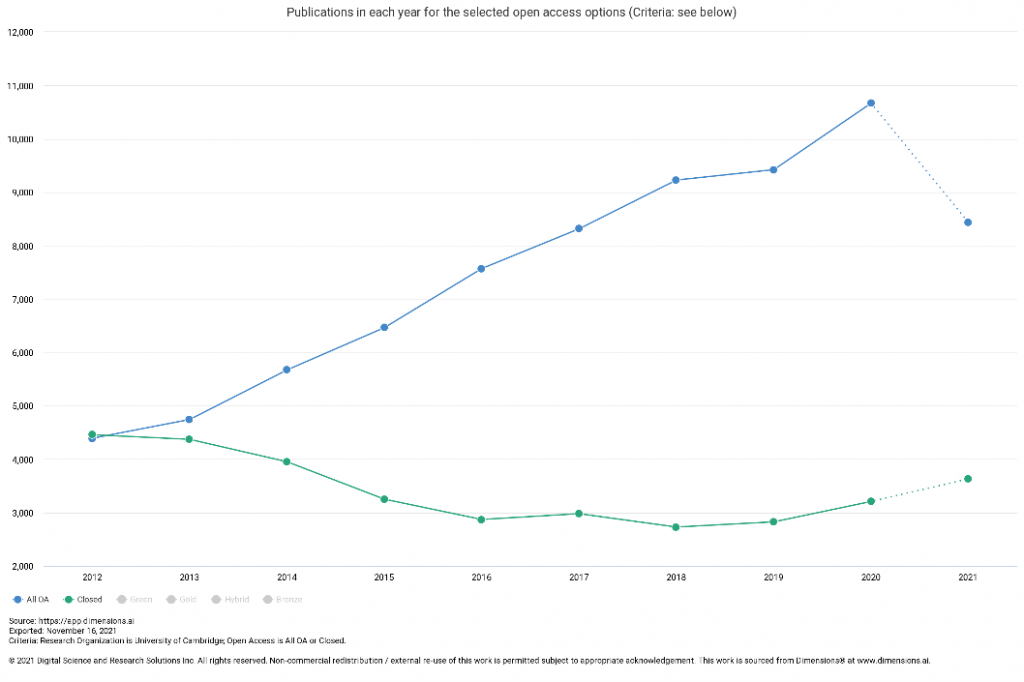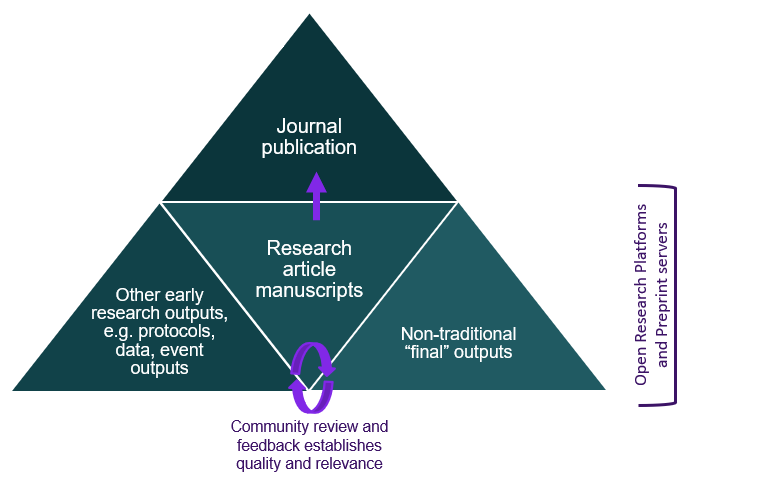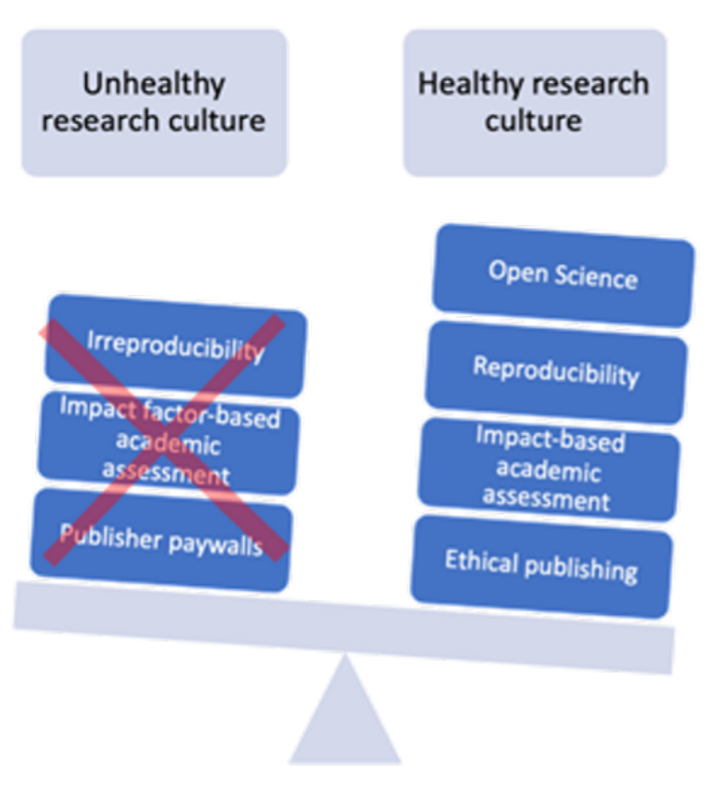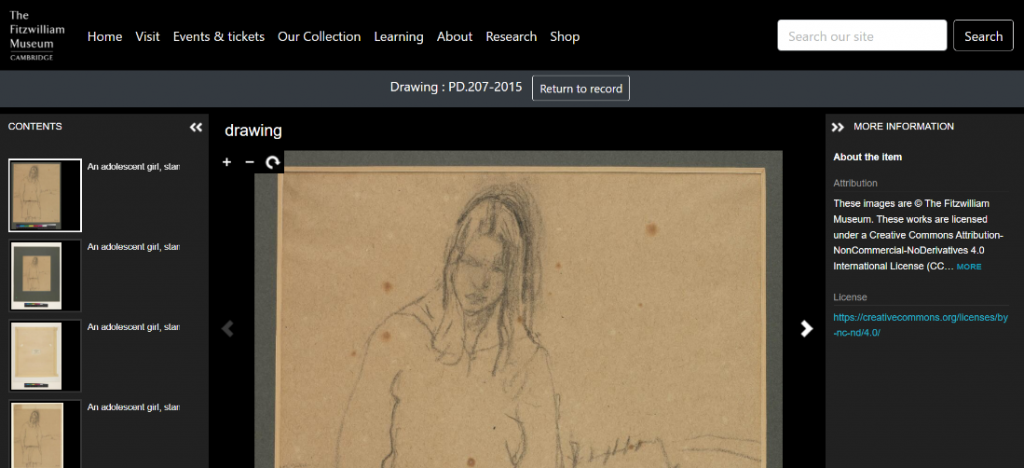This interview is reposted with agreement from the sOApbox blog. It is one of a series of blog posts outlining how different institutions are introducing rights retention policies to support their researchers in sharing their research as widely as possible.
14/04/2022
In 2008 Harvard’s Faculty of Arts & Sciences voted unanimously to adopt a ground-breaking open access policy. Since then, over 70 other institutions, including other Harvard faculties, Stanford and MIT, have adopted similar policies based on the Harvard model. In Europe such institutional policies have, so far, been slow to get off the ground.
We are beginning to see that situation change.
The University of Cambridge has recently established a pilot rights retention scheme on an opt-in basis, with a view to informing the next revision of the University’s Open Access policy. In the following interview, Niamh Tumelty, Head of Open Research Services at the University of Cambridge, describes the purpose of the pilot, how researchers can benefit from it and shares her tips for any other institution that might consider adopting a similar policy.
cOAlition S: Could you, please, describe the author copyright policy you have adopted at your university?
Niamh Tumelty: We are inviting researchers to participate in a Rights Retention Pilot, which will run for one year starting April 2022. Participating researchers will grant the University a non-exclusive licence to the accepted manuscripts of any articles submitted during the pilot, making it easier for us to support them in meeting their funder requirements by uploading their manuscripts to our institutional repository, Apollo, without needing to apply an embargo. The pilot has launched using a CC BY approach as required by most cOAlition S funders, and we are exploring providing an option for alternative licences for researchers who do not have that specific requirement.
The researcher will notify the journal by including the rights retention statement on submission. When the paper has been accepted, the researcher will upload the accepted manuscript as normal via Symplectic Elements, indicating during the upload process that they have retained their rights. The Open Access team will do their usual checks, advise the researcher on what will happen next and arrange for the article to be made available on Apollo.
We will closely monitor what happens during the pilot and all participating researchers will be able to comment on their experiences. We will review all feedback and use it to inform our next review of our institutional open access policy.
cOAlition S: Why did the idea of adopting an institutional rights retention policy emerge?
Niamh Tumelty: The introduction of the requirement for immediate open access to research supported by cOAlition S funders has proven challenging in practice, with some publishers offering no compliant publishing route and others charging unsustainable prices for immediate open access to the final published version. Unless researchers want to move exclusively to publishing in journals that are diamond, fully gold or included within read & publish agreements, they need a way to retain sufficient rights, so that they always have the option to post their accepted paper online to achieve open sharing of their scholarship. Some disciplines have been left with little or no choice about where they can publish their research while meeting their funder requirements and their own goals for open research.
“The rights retention strategy is a key tool to enable researchers to openly publish in whatever journal will reach the most appropriate audience.”
cOAlition S: How was consensus reached across the institution?
Niamh Tumelty: The fact that immediate OA is now a funder requirement for the majority of our researchers made the conversation relatively easy. We held a number of discussions at the Open Research Steering Committee to ensure that we had as full an understanding as possible, providing examples of issues that were arising in the first year of the Wellcome Trust rights retention requirement in the absence of an institutional policy.
We considered developing an institutional opt-out policy as others have done but concluded that the highly devolved nature of the University of Cambridge would have made it extremely difficult to conduct a thorough consultation and reach consensus by the deadline of 1 April 2022. We agreed that the most appropriate next step at Cambridge was to run a pilot on an opt-in basis. A working group was established to design this pilot and included researchers from across a range of disciplines along with open access and scholarly communication experts from Cambridge University Libraries. The working group met every two weeks from mid-January to the end of March to consider the issue from different disciplinary perspectives and to develop the approach for the pilot. We drew heavily on the policy that was introduced at the University of Edinburgh earlier this year, learning also from the UK Scholarly Communications Licence and Model Policy and recommendations that have been publicly shared by Harvard University. We brought the proposed pilot to the University’s Research Policy Committee for comment and took legal advice on the detail of how we would approach this before launching.
The beauty of a pilot approach is that no researcher has to participate – they have a choice about whether or not to opt in and will have the opportunity to influence whatever policy is ultimately introduced across the university. We can take this year to really understand the issues in detail and to build consensus about the best approach for Cambridge.
cOAlition S: What challenges had to be overcome before it was agreed to adopt the policy?
Niamh Tumelty: The biggest challenge in the lead up to the pilot has been understanding and developing confidence in the rights retention strategy. The expert legal advice we received following the announcement of the Wellcome Trust requirements and again as we designed the detail of our approach was critical in enabling us to develop the pilot. Now, our challenge is to clearly communicate and explain rights retention to our many researchers as a route they can choose when publishing and to grapple with any issues that arise during the pilot year before developing any full institutional policy.
cOAlition S: What are the advantages of adopting the policy for your researchers and your institution?
Niamh Tumelty: The rights retention strategy is a key tool to enable researchers to openly publish in whatever journal will reach the most appropriate audience. It may be that some publishers decide to reject any papers in which the author has retained their rights, but this seems an unsustainable position given the growing number of authors whose funders require immediate open access for all outputs.
The advantage of a pilot approach rather than a full institutional policy is that it provides space and time for deep engagement across our highly devolved university. It creates a framework for the researchers that wanted to have an early route to support them in retaining their rights and for the open access team that advises and supports them. It enables us to generate evidence from our own researchers, to build confidence and trust and to refine the approach ahead of shaping a full institutional policy.
“Researchers are in a stronger position than they realise – if publishers want to continue getting this free content from our researchers, they will need to develop publishing routes that meet the needs of their academic communities.”
cOAlition S: As a conclusion, what are your three top tips for any other university considering adopting a similar permissions-based Open Access policy to yours?
Niamh Tumelty: 1) Include a range of disciplinary perspectives from the earliest stages of planning. This early consideration will make it easier to tailor the messaging to different parts of the university, taking into account the different drivers and concerns that come into play. Make sure that the humanities perspective is included – too often in open research initiatives the humanities appear to be an afterthought, if considered at all.
2) Anticipate the questions that will be asked and make sure that you have clear and honest answers to those questions. Be honest and open about the fact that we are learning through the process (while building on the experiences of those who have gone before) and that there will be challenges. This enhances credibility and manages expectations as the policy beds in.
3) Have confidence in this approach! This is not new – researchers have been retaining their rights in this way for over a decade and it is becoming increasingly common practice across a range of institutions. Researchers are in a stronger position than they realise – if publishers want to continue getting this free content from our researchers, they will need to develop publishing routes that meet the needs of their academic communities.



